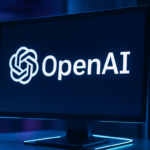Decentralised AI is swiftly emerging from the niche corners of Web3 enthusiasts to becoming a pivotal aspect of Europe’s technological landscape. As the continent grapples with how to align technological advancement with core values like privacy and accountability, the decentralised model offers a compelling alternative. Unlike traditional setups reliant on large, centralised servers from the US or China, decentralised AI disperses intelligence, giving control back to data owners and enhancing privacy protections. This shift not only adheres to strict regulations like GDPR but also propels Europe towards a future where technology serves societal and ethical imperatives.
Initially, decentralised AI efforts in Europe had limited scale and scope. The focus was often on smaller projects with specific applications, offering partial solutions rather than comprehensive systems. These early endeavors highlighted the potential but faced limitations in achieving broad impact due to fragmented development. As the ecosystem matured, innovations in federated learning and blockchain-enhanced data protection began to surface, setting the stage for the more integrated approaches seen today. Gaia’s entrance into this landscape is a testament to the progression from localized experiments to a cohesive European initiative striving for scale and depth.
Why does decentralized AI matter in Europe?
Decentralised AI’s role in Europe is particularly significant given the continent’s emphasis on data sovereignty and privacy. By allowing data to remain local while being processed, it aligns closely with regulatory frameworks. The concept challenges centralized big tech dominance, aiming to democratize access to AI development. This becomes crucial in enabling startups and smaller companies to compete on equal footing. European regulators, emphasizing platform accountability, view decentralised AI not as an option but a necessity to ensure compliance with stringent data policies.
Who are the key players in this field?
Several startups across Europe are pioneering decentralized AI technologies. SingularityNET in the Netherlands is advancing a decentralized marketplace for AI services, lowering barriers for smaller developers. German-based Flower Labs focuses on federated learning to support privacy-preserving initiatives. The UK sees innovation through Bitfount and Neuron, addressing sensitive data analysis and machine-to-machine communication. However, Gaia distinguishes itself by integrating these efforts into a unified platform, providing the orchestration needed to turn disparate innovations into a functional ecosystem.
Gaia’s strategy involves moving beyond mere pilot projects to full-scale deployments. It has already found traction in collaborating with European telecom companies for predictive maintenance and edge-based personalisation—demonstrating that decentralised AI offers not only theoretical promise but practical, scalable solutions. The ability to support these initiatives underlines the potential for widespread adoption across various industries.
Jayce Betts, a spokesperson for Gaia, elaborated on their mission:
“At Gaia, our ambition is clear—construct Europe’s decentralised AI backbone, scaling with modularity and ensuring sovereignty. We aim to reconcile innovation with trust, thereby empowering Europe to set its own standards rather than emulating others.”
By enhancing privacy and reducing centralized risks, Gaia is setting a stage for more secure AI adoption.
The challenges of decentralised AI include combating latency, handling adversarial attacks, and establishing effective governance. Gaia’s statistical consensus system addresses these hurdles, ensuring synchronization across multiple nodes. By incorporating secure multiparty computation, Gaia significantly lowers the risk of compromised models, while a token-credit system provides well-defined incentives.
Gaia positions itself as more than a simple market entrant; it offers a cohesive framework for the decentralised AI field. As it galvanizes Europe’s efforts, this approach highlights a vision of technological advancement harmonized with core democratic values. Though described as a contender in Europe’s AI landscape, Gaia brings together diverse strands of innovation into a singular, impactful system.










